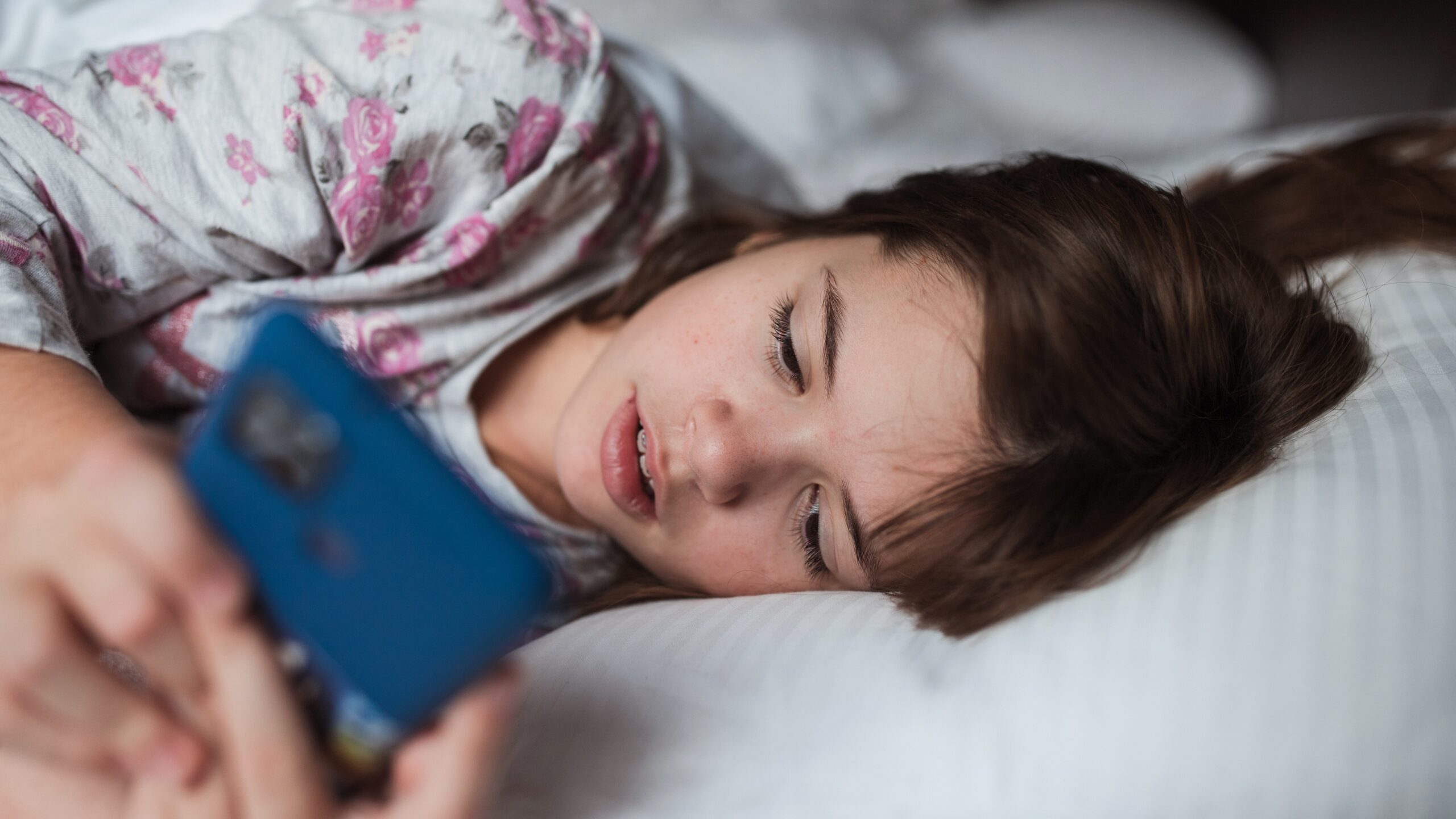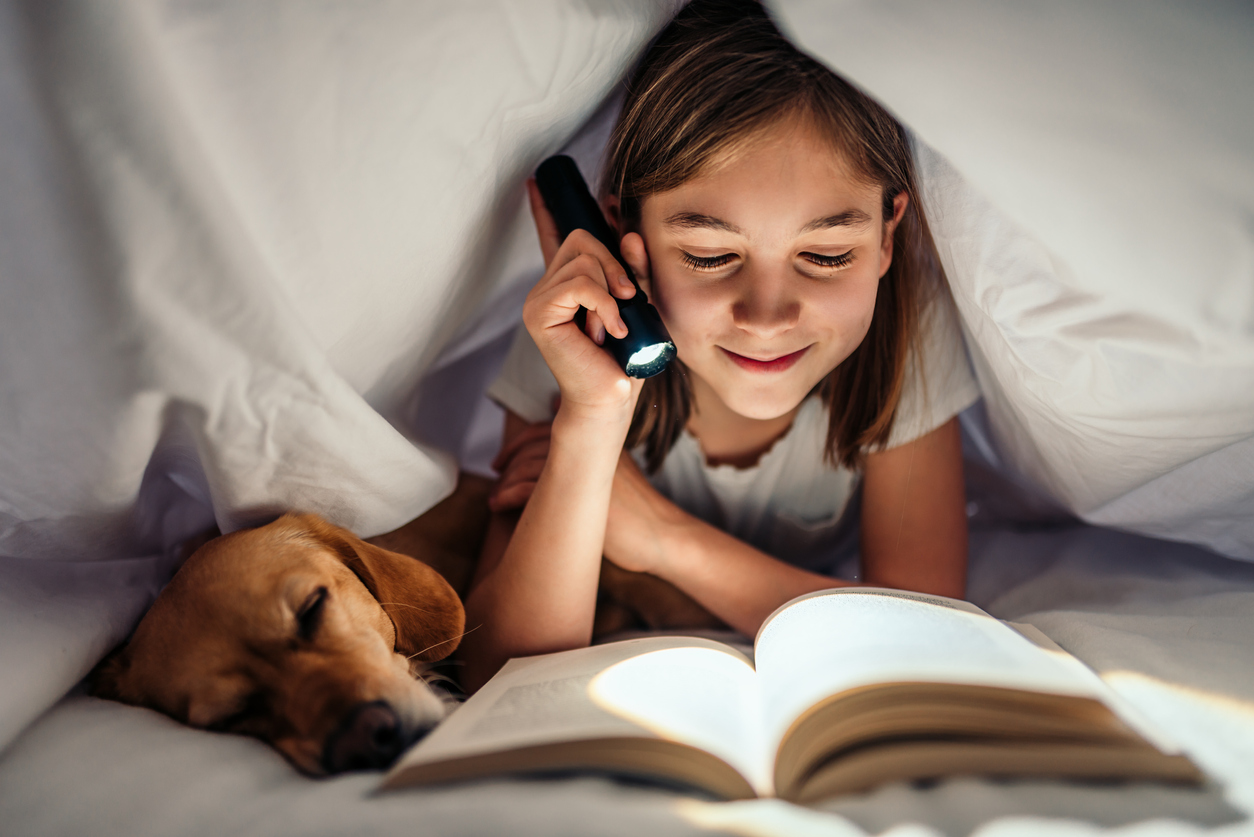
Early to bed, early to rise is easier said than done if you’re a parent. But it’s important to get your child on a healthy sleep schedule, especially during the school year. According to the Centers for Disease Control and Prevention, kids ages 6 to 12 need to clock from 9 to 12 hours of sleep per night. The CDC states that sleep is critical to prevent type 2 diabetes, obesity, poor mental health, injuries, and attention or behavior problems.
Furthermore, SleepFoundation.org states, “Early in life, a person experiences tremendous development that affects the brain, body, emotions, and behavior and sets the stage for their continued growth through childhood and adolescence.”
To help parents get on a routine this school year, LittleThings spoke with Summer Kerley, PharmD, vice president of clinical services and business development at Rite Aid.
“There are several simple lifestyle changes and remedies that can help get families get into a regimented nightly sleep routine as biological clocks adjust to new sleep patterns for the school year,” says Kerley. “For starters, the environment in which you fall asleep can greatly impact your quality of sleep. Opt for an environment that is cool, dark, and quiet. Consider fans, sleep masks, and white noise machines to help promote a relaxing setting. You may want to explore complementary therapies like aromatherapy and essential oils. Limiting screen time before going to bed can help ease transition to sleep. Additionally, replace those late summer dinners with an earlier mealtime, as falling asleep on a full stomach often leads to a restless night’s sleep.”
Kerley says that, above all, consistency is key. “To maintain a consistent sleep schedule, aim to have your family wake up and go to sleep at the same time every day, including weekends,” she stresses. “While it’s unrealistic to never stray from the usual schedule, staying as close as possible to your normal bedtime and wake-up time will ease your family into a regular sleep routine.”
It’s no surprise that a tired child will fall asleep earlier and faster than a child with full energy levels. That’s why exercise is also key.

“Exercise does impact sleep quality,” notes Kerley. “Being physically active during the day can help you fall asleep easily at night. However, it is important to remember to work out ideally at least five to six hours before bed to get the best quality sleep. Exercising too close to bedtime will adversely affect restfulness by disrupting how much REM sleep you get.”
Exercise is one good habit to form, but parents should be mindful of bad ones that can have a negative impact on a child’s sleep. “The use of electronic devices such as TVs or smartphones can serve as a distraction and keep you from falling asleep quickly and sticking to your sleep schedule,” warns Kerley. “You should also avoid large meals before bedtime. If hungry at night, eat a light, healthy snack instead. Parents and children who are 6 years or older should also avoid napping during the day and, if necessary, should limit the nap to 30 minutes in the early afternoon.”
And bad habits go for parents, too. Kerley points out, “A common misperception by adults is that alcohol helps you sleep better. It is true that an alcoholic beverage before bed may make it easier to fall asleep. However, alcohol triggers sleep that tends to be lighter than normal. This makes it more likely that you will wake up during the night, and as a result, sleep quality will decrease.”
If someone in your family struggles with insomnia, Kerley suggests aromatherapy as an alternative remedy. “Aromatherapy with lavender oil is believed to have a calming effect and, in turn, may improve anxiety and promote better sleep,” Kerley shares. “I often recommend adding a few drops of jasmine, bergamot, or lavender oil to a diffuser to help create a calming environment in your bedroom.”
Beware if you have pets, though. The American Kennel Club notes that essential oils can be toxic to dogs. Be sure to consult your veterinarian before using any essential oils in your home if you have fur family members.
Kerley also sheds light on how sleep and nutrition are imperative to physical health and have a direct impact on immunity, saying, “When you are asleep, your body regenerates new cells and acquires the energy needed to fight off infection, thereby enhancing immunity. A lack of sleep will disrupt this process and result in decreased immune function. By implementing healthy sleep habits, you can make a difference in your immune response.”

Kerley continues, “Additionally, the best way to strengthen your immune system is to eat a well-balanced, nutrient-rich diet. Be sure to consume plenty of foods with vitamin C such as broccoli, oranges, or cantaloupe. Antioxidant-rich, colorful fruits and vegetables, such as berries, carrots, and spinach, help support immunity by protecting your body from harmful compounds called free radicals. Try to avoid processed foods and excess sugars. Stay hydrated with plenty of water and other sugar-free and caffeine-free beverages.”
If a balanced diet doesn’t fit into your lifestyle or you struggle to get all of your nutrients from food alone, Kerley suggests, “You can use over-the-counter vitamins, minerals, and supplements to help meet daily nutritional guidelines. Some supplements that support immunity include zinc, which is important to immune cell function and supports the body’s defense against infection, and elderberry, which is rich in antioxidants and may help to support immune function.”

Some parents give melatonin to their kids before bed. Kerley says, “Melatonin is generally considered to be safe for children when taken for a short period of time. However, it is always best to consult a pediatrician to further understand why your child may experience trouble sleeping and the best ways to address the issue.”
As you prepare your kids for slumber, you might want to tuck them in with a book. According to SCL Health, bedtime stories enrich language development, grow imaginations, and provide an outlet for empathy, among other benefits. Parents can turn in for the night knowing they did something to enrich their child’s life, and that makes for some pretty sweet dreams.







